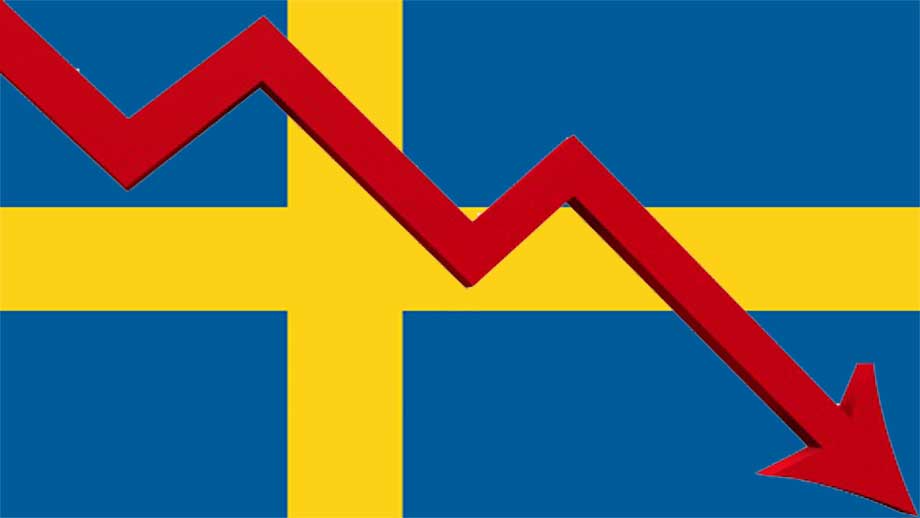The Swedish Business Community warns that the recession may persist, and what has so far saved the Swedish economy from a crash landing is the weak krona that has sustained exports.
It is in a press release on Monday that the Swedish Business Community gives its view on the recession and warns that it may last longer than predicted.
”The Riksbank’s earlier interest rate increases have had a cooling effect on the Swedish economy. What has saved the economy from a crash landing is the weak krona that has sustained exports. Inflation is expected to remain low in the future, and the interest rate will gradually be reduced to two percent by 2025”, writes the Swedish Business Community and continues:
”Interest rate changes, however, have a delayed effect, which means it takes time before the Swedish economy recovers. GDP fell last year, and this year a weak growth of 0.9 percent is expected. Next year, growth is expected to be 2.3 percent, which means that Sweden will be in a recession throughout the entire forecast period.”
READ ALSO: SCB: Sweden’s economy is shrinking
Sven-Olov Daunfeldt, chief economist at the Swedish Business Community, comments on their warning by saying he is ”genuinely worried”.
– I am genuinely worried that the recession will persist in the economy more than we expected. Unemployment is high and is expected to rise to 8.4 percent this year and remain at that level until 2025. This is particularly concerning in combination with extensive exclusion and a low degree of self-sufficiency that is not reflected in the unemployment statistics. There are too many signs pointing in the wrong direction, says Daunfeldt.
Furthermore, the Swedish Business Community highlights that their business panel indicates a pressured situation. It concerns the current number of employees, investments, and sales volume, which are clearly below average.
– Our companies clearly indicate a weak economy that is only slowly recovering. In addition, the risk of layoffs and redundancies remains high in the latest panel survey, Daunfeldt explains.
He also warns that even if the worst regarding interest rates and inflation is over, the geopolitical situation may create risks of negative surprises. And even if Sweden manages to achieve the goals of low inflation and falling interest rates, there are still long-term problems with weak growth and a problematic labor market.
– Sweden has lagged behind other countries for a long time. It is a long road to restore Sweden as a strong growth nation and to tackle unemployment. Therefore, it is welcome that the government is launching several important growth reforms in this year’s budget. More of that is needed, says Daunfeldt.
READ ALSO: Migrants’ unemployment devastating for the economy:
